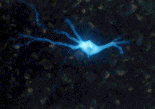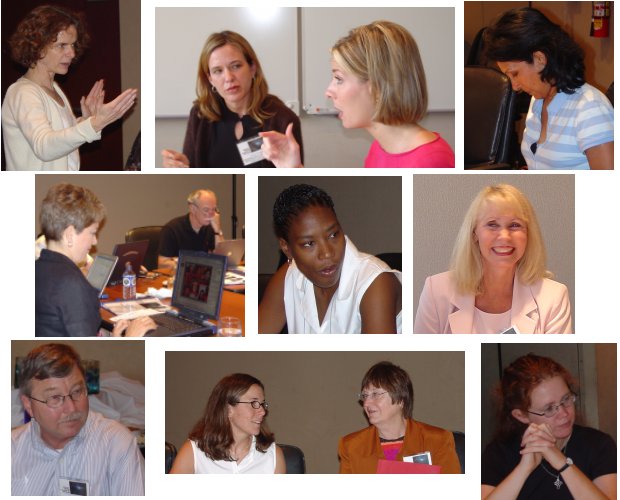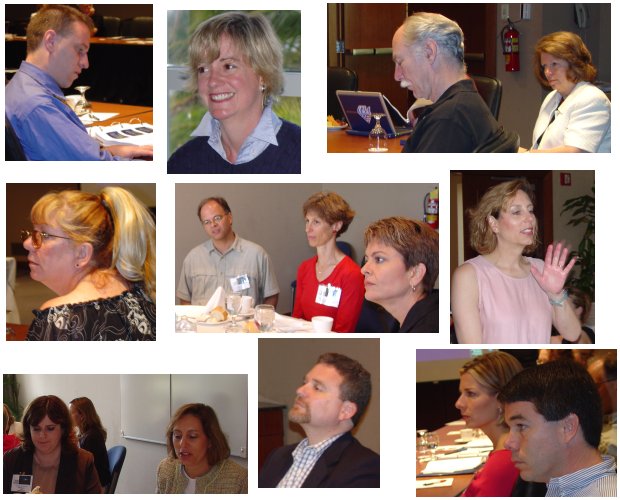Mark Andersen
Medical Reporter
Lincoln Journal Star
Lincoln, Nebraska
Debi Chard
Anchor, Managing Editor, Medical Reporter
WCSC-TV
Charleston, South Carolina
Meera Cheriyan
Producer
Fox 11 News
Los Angeles, California
Diana Davis
Health Reporter
WSB TV News
Atlanta, Georgia
Asante Green
Journalist and Public Relations Consultant
Stamford, Connecticut
Laurence Hammack
Reporter
The Roanoke Times
Roanoke, Virginia
Matthew Hathaway
Reporter
St. Louis Post-Dispatch
St. Louis, Missouri
Mark LaFlamme
Crime Reporter and Columnist
Sun Journal
Lewiston, Maine
Sue McRoberts
Staff Reporter
Whittier Daily News
Whittier, California
|
|
Nancy McVicar
Senior Health Writer
South Florida Sun-Sentinel
Fort Lauderdale, Florida
Michelle Peltier
Anchor/Reporter/Producer
KBTX-TV
Bryan, Texas
Barbara Reyelts
Investigative Reporter
KBJR-TV
Duluth, Minnesota
Shannon Samson
Healthcare Reporter
14 WFIE
Evansville, Indiana
James Shamp
Science/Health Reporter
The Herald-Sun
Durham, North Carolina
Michelle Start
Reporter
The Daily Commercial Newspaper
Leesburg, Florida
Julea Steiner
Project Manager, Medical Jornalism Student
University of North Carolina at Chapel Hill
Chapel Hill, North Carolina
Christina Vance
Reporter
The Bakersfield Californian
Bakersfield, California
Hilary Waldman
Health Writer
The Hartford Courant
Hartford, Connecticut
|
On the introduction to pharmacological terms:
"Great
intro to the workshop with good analogies to make science jargon understandable."
On
the history of addiction in America:
"Again,
great info to drop into stories on addiction to give people perspective."
"LOVE the old ads. The history was interesting!"
On
animal models of addiciton:
"It
was helpful seeing how addiction affects monkeys and mice."
On
the neurobiology of addiction:
"Great info on how drugs change the brain."
"Bertha Madras was an excellent speaker. She kept my attention the entire
time. She provided insight that will allow journalists to go more in
depth in their research and reporting."
On
the pharmacology of addiction:
"Excellent. Really explained it clearly. I had no idea!"
"Shelly Schwartz Bloom's video was incredible. Her presentation was
very informative and provided journalists with scientific information
in a way that can easily be conveyed to our readership."
On
the genetics of substance abuse:
"Jennifer did an excellent job of translating highly technical stuff."
On
the personal side of addiction:
"Good story -- perfect for reporters."
"Startling and honest. A nice break from the clinical viewpoint."
"I'm glad
you had a real face to put to the numbers. And I'm glad Sue showed us
successful, attractive and 'normal' people experience addictions as
well."
On
principles of addiction treatment/medications:
"Wow. Made the session. Several stories formed in my mind, and I saw
the hint of many more. Confirmed for me the quality and integrity of
the science being done."
"Exceedingly informing. This should have been longer, earlier and with
more time for questions."
"Lots of new info. Good fodder for future news stories."
On
evaluating treatment:
"Provocative, interesting. He presented a clear picture
of the growing gap between the potential and the reality."
"My favorite. I walked away from this lecture with plenty of story
ideas. More time for questions needed."
"Chockfull of news story ideas. Great! Wish I had the slides to
follow along. Couldn't stop writing the whole time. Your information
was invaluable! It is all overwhelming, almost."
On
treating the offender population:
"Very good stuff, especially for the purposes of my crime beat.
Maybe include more info on if the system is using science info at all
(anywhere) in its treatment like court-ordered drug treatment in Alaska."
"My favorite lecture - interesting, practical and speaker was very
engaging. This is probably the information I will use the most."
|
|
On
principles of prevention:
"Very
good information on school drug programs!!!"
On
scientifically reliable sources of information on the internet:
"Excellent information which I will use on a regular basis - concise
and informative."
Overall
impressions:
"I came
to learn the science and I feel I'm leaving knowing the state of substance
abuse science - and with a handful of excellent sources!"
"Good overviews of the science, research in progress and rich array
of possible future sources for stories."
"Well worth the time - better than most conferences - high quality
speakers."
"It allowed me to make contacts. Provided excellent story ideas."
"I learned more in 2 days than I would have learned in 2 months
of research on my own."
How
participants think the workshop will help them with their reporting
on substance abuse:
"Got
great info on courts/treatment stuff, plus good background on science
stuff to understand the medicines better."
"This increases my confidence for wading into a series on the subject.
I'll lean on presenters and their data to help pin down the facts on
our community."
"I came here knowing nothing about addiction. I left feeling
at least able to better evaluate information and with a better understanding
of the research, vocabulary and many complex issues surrounding and
all who abuse."
"I'll be much more thorough in questioning. Even in crime stories,
I'll know where to look for a better view of 'why'."
"I have a better understanding of the science behind addiction.
When 'experts' tell me things relating to stories I'm writing, I will
have a better concept of the value of what they are saying."
"Having more background information (base info) obviously will
mean a change in approach and allow for better questions on my part,
and better translation to the views (hopefully!)."
"I've learned a more evidence-based perspective on the need to
balance the biomedical realities of addiction with my long-held belief
that our current 'Justice' system isn't 'Just' in handling this stuff."
What
participants liked most about the workshop:
"For the selfish purposes of my crime beat, the treatment and crime/punishment
stuff."
"The willingness of presenters to answer questions anywhere, anytime.
The fact that we associated with presenters in social settings (meals,
reception)."
"Great explanations of how and why things work."
"The slow building of knowledge starting with the biology and moving
up and on from there. It would have been difficult to understand the
treatment lectures without the prior day's addiction and the brain 101
sessions. Websites good."
|
David Friedman, Ph.D.
Director, Addiction Studies Program for Journalists
Professor
Department of Physiology and Pharmacology
Wake Forest University School of Medicine
Winston-Salem, North Carolina Sue
Rusche
Co-Director
Addiction Studies Program for Journalists
Chairman, President, and CEO
National Families in Action
Atlanta, Georgia
Sheila M. White
Coordinator, Addiction Studies Program for Journalists
Administrative Secretary
Wake Forest University School of Medicine Department of Physiology and
Pharmacology
Winston-Salem, North Carolina
Jennifer Logan, Ph.D.
Co-Director, Genetic Science Learning Center
University of Utah
Salt Lake City, Utah
Bertha Madras, Ph.D.
Professor of Psychobiology, Department of Psychiatry
Harvard Medical School, Harvard University
Chair, Division of Neurochemistry
New England Primate Research Center
Southborough, Massachusetts
Douglas
B. Marlowe, J.D., Ph.D.
Director, Section on Criminal Justice Research
Treatment Research Institute
University of Pennsylvania
Philadelphia, Pennsylvania
|
|
A.
Tom McLellan, Ph.D.
Director, Treatment Institute
University of Pennsylvania
Philadelphia, Pennsylvania
Charles P. O'Brien, M.D., Ph.D.
Kenneth Appel Professor
Vice Chair of Psychiatry
University of Pennsylvania
Philadelphia, Pennsylvania
Susan
Rook
Recovery Advocate
Alexandria, Virginia
Rochelle
“Shelly” Schwartz-Bloom, Ph.D.
Professor of Pharmacology
Duke University Medical Center
Department of Pharmacology & Cancer Biology
Durham, North Carolina
Zili
Sloboda, Sc.D.
Senior
Research Associate
Institute for Health and Social Policy
The University of Akron
Akron, Ohio
Jack
W. Strandhoy, Ph.D.
Professor
Wake Forest University School of Medicine
Department of Physiology and Pharmacology
Winston-Salem, North Carolina
Kent
E. Vrana, Ph.D.
Professor
Wake Forest University School of Medicine
Department of Physiology and Pharmacology
Winston-Salem, North Carolina |



